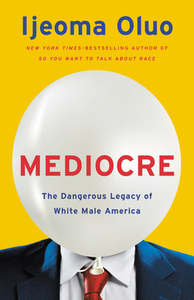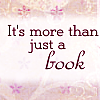You need to sign in or sign up before continuing.
Take a photo of a barcode or cover
Heavy, heart breaking, enraging. Essential reading.
This book will make you angry, in a good, rousing way. We must do better! I particularly appreciated the chapter on the history of American football and really enjoyed Oluo's narration, which is calm and steady, despite the content that might make one apoplectic.
challenging
informative
medium-paced
I've been wanting to read this book since it came out, so I'm glad 2022 was the year I finally checked out the audiobook from the library. I don't always love when authors read their own books, but I thought Oluo did a great job here. I also appreciate all the emotional labor that went into this one, as she acknowledged at the end that these were difficult topics to write about and research.
This one was formatted in such an engaging way, with each chapter showing how a specific theme or issue that we see today had its roots in early American history. Even the events or policies I had already heard about were given additional color and detail, and there were plenty of historical figures that were new to me, like Shirley Chisholm.
Admittedly, this often made me really angry on my walks to work, so it's both a frustrating and a worthwhile read! As a burgeoning nonfiction reader, I recommend adding this one to your list.
This one was formatted in such an engaging way, with each chapter showing how a specific theme or issue that we see today had its roots in early American history. Even the events or policies I had already heard about were given additional color and detail, and there were plenty of historical figures that were new to me, like Shirley Chisholm.
Admittedly, this often made me really angry on my walks to work, so it's both a frustrating and a worthwhile read! As a burgeoning nonfiction reader, I recommend adding this one to your list.
Graphic: Hate crime, Racial slurs, Racism, Sexism
Moderate: Gun violence, Police brutality
Minor: Mass/school shootings
Oluo is a fellow alumnus of Western Washington University, and she is also a Seattle-area resident.
In many ways, I felt So You Want To Talk About Race is a much more approachable read by this author because the topics and more stream-of-consciousness prose in that felt a tad more easier to pick up on. Others didn't really like those features of her previous book; they wanted something more structured. So if you were of that mindset, you might like this one a lot better.
This one has longer chapters on each issue that go much more in-depth regarding each topic's intersectionality with race and sometimes gender. For example, there are chapters on football, college, and the Old West vs. Indigenous People. There is considerable history included, and it is well-researched.
It does come across a tad textbook-y, which her previous book didn't - at least to me.
In many ways, I felt So You Want To Talk About Race is a much more approachable read by this author because the topics and more stream-of-consciousness prose in that felt a tad more easier to pick up on. Others didn't really like those features of her previous book; they wanted something more structured. So if you were of that mindset, you might like this one a lot better.
This one has longer chapters on each issue that go much more in-depth regarding each topic's intersectionality with race and sometimes gender. For example, there are chapters on football, college, and the Old West vs. Indigenous People. There is considerable history included, and it is well-researched.
It does come across a tad textbook-y, which her previous book didn't - at least to me.
I want to be very clear that my criticisms of the book are of the structure, not the content. The content (in particular the section about the terrifying spate of group violence towards prosperous Black communities in the Midwest in the 1910s) is crucial.
Oluo’s writing finds a way to be warm and wry amidst damning material. Her tone is hopeful and forgiving, even when she pushes us to do better. As with her other writing, Oluo is not an emotionally detached recounter of events. She writes deeply and personally.
That being said, the form and structure of this book was highly discombobulated. Each chapter was strongly written, well-researched, devastatingly articulate. But the central thesis seemed to bounce around from atrocity to atrocity with little connecting material between passages. I wanted more “why” - why this story? Why this man? It’s not that the “why” was never present, but that it was inconsistent enough to feel off-kilter. And when it was present, it was often tucked into such breathtakingly fantastic cruelty that you almost lost the plot. The cruelty should not be smoothed over, but I personally would’ve liked more compassionate lingering on the outcomes and implications of the cruelty.
The order of chapters also made me feel out of sorts. The chapter on football was one of the strongest, but going straight from women in the workplace to football was so jarring as to almost be a non sequitur. Transitional writing would’ve gone a long way.
I often think books could be shorter, more concise, but in this case I wanted more. More rumination on the central thesis throughout, more tie-ins from one chapter to the next. The introduction and conclusion were both strong in explaining Oluo’s intentions, but I missed that in the heart of the content. In writing about it here, I realize my issue is more with Oluo’s editor, as they should’ve encouraged more big picture thinking and strong connective tissue. More callbacks to previous material could’ve gone a long way to supporting the structure.
Perhaps (almost certainly) I am being picky. Ironically, it’s easier to be picky when you really like something (though I don’t know if “like” is quite the right word for a searing indictment of abusive white masculinity). The meat of this book is incredible. It’s just that the bones are a little wonky.
Oluo’s writing finds a way to be warm and wry amidst damning material. Her tone is hopeful and forgiving, even when she pushes us to do better. As with her other writing, Oluo is not an emotionally detached recounter of events. She writes deeply and personally.
That being said, the form and structure of this book was highly discombobulated. Each chapter was strongly written, well-researched, devastatingly articulate. But the central thesis seemed to bounce around from atrocity to atrocity with little connecting material between passages. I wanted more “why” - why this story? Why this man? It’s not that the “why” was never present, but that it was inconsistent enough to feel off-kilter. And when it was present, it was often tucked into such breathtakingly fantastic cruelty that you almost lost the plot. The cruelty should not be smoothed over, but I personally would’ve liked more compassionate lingering on the outcomes and implications of the cruelty.
The order of chapters also made me feel out of sorts. The chapter on football was one of the strongest, but going straight from women in the workplace to football was so jarring as to almost be a non sequitur. Transitional writing would’ve gone a long way.
I often think books could be shorter, more concise, but in this case I wanted more. More rumination on the central thesis throughout, more tie-ins from one chapter to the next. The introduction and conclusion were both strong in explaining Oluo’s intentions, but I missed that in the heart of the content. In writing about it here, I realize my issue is more with Oluo’s editor, as they should’ve encouraged more big picture thinking and strong connective tissue. More callbacks to previous material could’ve gone a long way to supporting the structure.
Perhaps (almost certainly) I am being picky. Ironically, it’s easier to be picky when you really like something (though I don’t know if “like” is quite the right word for a searing indictment of abusive white masculinity). The meat of this book is incredible. It’s just that the bones are a little wonky.
I received a copy of this novel from Net Galley for an honest review.
This book and title will turn a ton of people off, but it is an extremely blunt take on American history by a person of color...a woman of color. This book had some amazing insights and incredible nuggets of truth. I recently read a quote that pointed out that we have had patriarchy for millennia and men aren't even happy with the system they built. I think about that quote everyday because YES it is so true!
This book points out the subtle undertones of white supremacy in our every day lives; in our local governments, in our relationships, in our sports organizations, in every institution we are part of. It is a difficult topic to tackle and handle with grace, yet Oluo does just that.
It is sad that there will be those who should read it and won't, but miss the message of hope and change Oluo gives at the end of the book. We can change, we can give everyone a seat at the table, we can all have our voice heard. Tackling our violent history is the first step and admitting our dark, dirty, racist secrets is the first step.
P.S. I went out and purchased this book after reading my eARC to support the author and the research she put into her work.
Book #6 of 2021
Pop Sugar 2021 Challenge: A book about a social justice issue
This book and title will turn a ton of people off, but it is an extremely blunt take on American history by a person of color...a woman of color. This book had some amazing insights and incredible nuggets of truth. I recently read a quote that pointed out that we have had patriarchy for millennia and men aren't even happy with the system they built. I think about that quote everyday because YES it is so true!
This book points out the subtle undertones of white supremacy in our every day lives; in our local governments, in our relationships, in our sports organizations, in every institution we are part of. It is a difficult topic to tackle and handle with grace, yet Oluo does just that.
It is sad that there will be those who should read it and won't, but miss the message of hope and change Oluo gives at the end of the book. We can change, we can give everyone a seat at the table, we can all have our voice heard. Tackling our violent history is the first step and admitting our dark, dirty, racist secrets is the first step.
P.S. I went out and purchased this book after reading my eARC to support the author and the research she put into her work.
Book #6 of 2021
Pop Sugar 2021 Challenge: A book about a social justice issue
challenging
emotional
informative
reflective
medium-paced
challenging
informative
reflective
medium-paced
challenging
dark
emotional
informative
sad
medium-paced
I learned a lot and I really appreciate her research and writing style.







